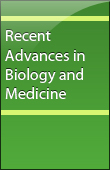


The pains and challenges of pregnancy and delivery are made worse when the resultant neonate dies. Fortunately, many of these neonatal deaths can be prevented if autopsies are routinely conducted to ascertain the immediate and remote causes of death toward subsequent prevention. Unfortunately, there is paucity of studies on neonatal autopsy rates (NARs) in many developing countries, with few reports indicating unacceptably low rates. This study was therefore aimed at assessing the trend in neonatal deaths and autopsy rates in Calabar, Nigeria. Trend analysis of retrospective data obtained from medical records of neonatal deaths and deliveries was conducted. Neonatal mortality rate (NMR) and NAR were obtained for each of the years within 2004-2013. Ethical approval was obtained from the ethical committee of University of Calabar Teaching Hospital (UCTH), Calabar, Nigeria. In the 10-year study period, there were 22,916 deliveries with a male:female ratio of 1:0.95. There were 1136 neonatal deaths, yielding a total NMR of 49.6 per 1000 live births (ranging from 26.7 in 2011 to 93.7 in 2004). Bimodal peak in NMR was found at 2008 and 2012. Eighty six neonatal autopsies were conducted within the study period yielding a mean autopsy rate of 7.57%, ranging from 0% in 2008 to 25.0% in 2013. This study found unacceptably high NMR and low NAR in the study setting. There was, however, gradual decrease in mortality and increase in autopsy rates through the study period. It is essential to redouble the efforts at improving public health education and awareness on the relevance of autopsy toward improved health service delivery. Similar studies are recommended in other similar and dissimilar settings.